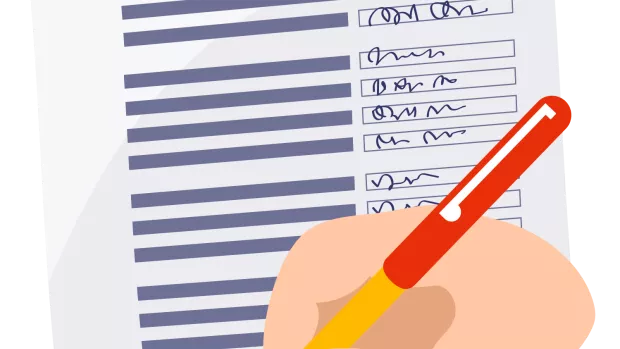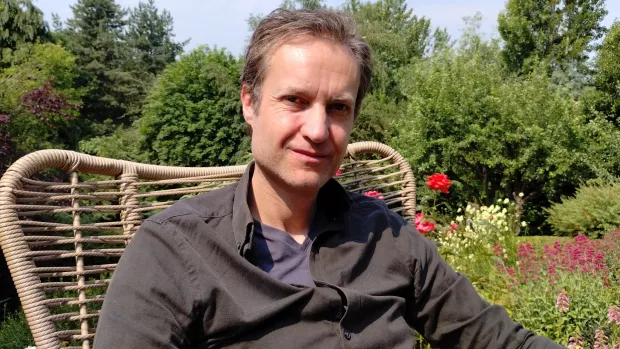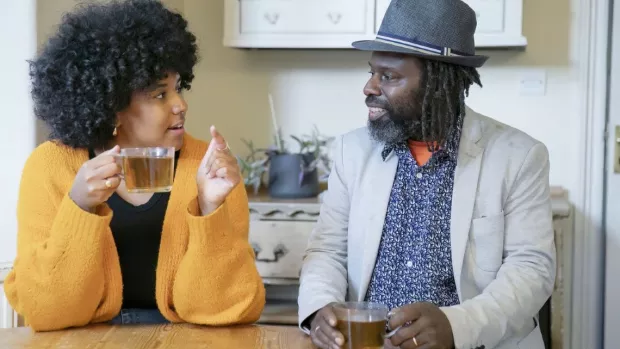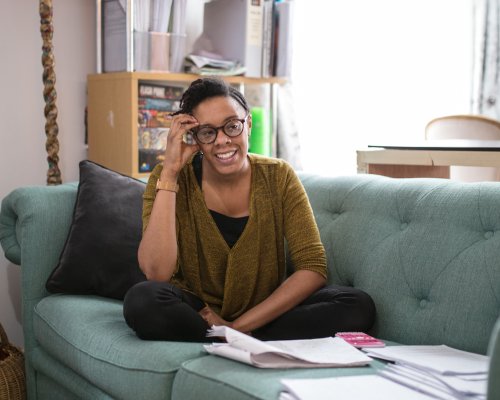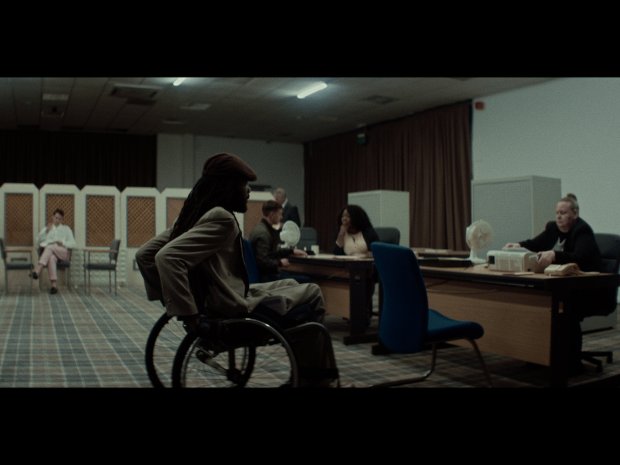
Filming (Un)Fit To Work - An interview with Ekow Otoo
Ekow Otoo is an actor and MS advocate. In 2022 he starred in the award-winning short film: (Un)Fit to Work, directed by Yasmin Godo as part of Channel 4’s series, Random Acts.
Babs: Hello, welcome, can you tell me your name and connection to MS?
Ekow: My name’s Ekow and my connection to MS is that I've got MS. Originally it was relapsing remitting, but I transitioned to secondary progressive around 2021-22. And my partner also has MS.
Getting the call
Babs: How and why did you get involved in making (Un)Fit to Work?
Ekow: Even though I have MS fatigue, I'm actually quite an insomniac. So, I just happened to be on Instagram at 3 in the morning or something one night and I get a message from Yasmin. She said she had this idea for a short film that she's working on, and she wanted me to be the main character in it.
She explained that it was about representing the underrepresented and that instantly caught my attention, because that's basically what I'm all about.
I love to be involved in projects that change people's perspectives and disrupt people from their normal way of thinking.
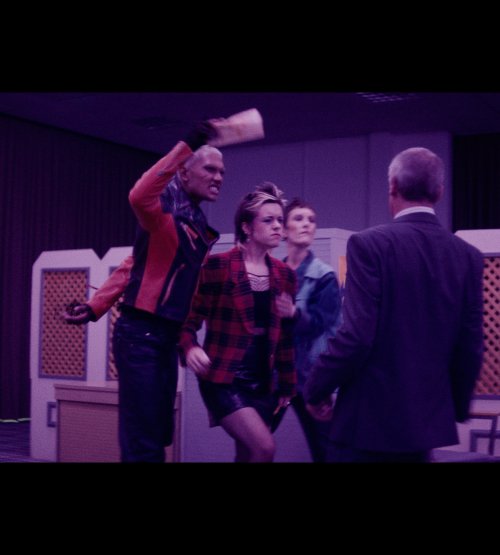
She told me the storyline, I thought great! I especially got excited when she told me it was going to turn into a dance section halfway through. I thought that was a super cool idea. I’m not a dancer at all, but I thought it would be a lot of fun.
Yasmin (Director) adds: I discovered Ekow from a piece he did with Lad Bible and loved everything he had to say. So I found him on social media. Several months later, I reached out to him with my idea.
I think I was more shocked someone was also up at an anti-social hour of the night, like myself!
Highlighting barriers that disable us
When I wrote the song for the film, I'd not too long been formally diagnosed with ADHD. The film was speaking loosely about myself and the family I have had to be an active carer for. But when I connected with Ekow, Laura and so many others, it was evident we've all had mirrored experiences.
I'm always going to be thankful for Ekow. His belief and support was the sole reason this seed of an idea was able to blossom into a well rooted tree. Had it not been for his kindness and support, who knows if anything would have become of this
Babs: What was your favourite bit about making the film?
Ekow: The dance off. That was really, really fun to film. I’ve done something to do with dance before, but very slow dance. The high energyness of it was a lot of fun. And watching how many skilled dancers there were. The vogue dancing, I find super fascinating how you can pose to a beat is incredible to me.
I also enjoyed filming the beginning. My interaction with the DWP officer was the funniest part for me. Lorraine Malby, who played the DWP officer, was very funny. Very expressive. A very, very, good actress.
Celebrating community
Yasmin adds: Working alongside Ekow, Laura and the rest of the cast was a really refreshing yet eye-opening experience. It re-affirmed to me, what it is to celebrate us!
I'm very firmly championing every single one of my team, and trying to keep abreast of what everyone is doing. Not just because they believed in this idea and helped bring it to life, but honestly because they're just such a wonderful group of people. Ekow and I are still due to go out for drinks!
Babs: It looked so much fun. Your main dance partner was Laura Dajao, an MS warrior, wheelchair user and dancer. Did she choreograph it?
Ekow: No, we had a choreographer, Susan King, she was awesome. She was very cool. It was a collaborative effort as well. Laura and I collaborated with it and Susan refined it, made it what it was.
Susan helped me a lot. Laura dances, she knew what she was doing with her movements. I had to be coached a little bit, I think.
The job centre - an unexpected first step to diagnosis
Babs: You're all so good. Can you tell us more about your role?
Ekow: I enjoyed the role because of the interaction, the whole experience with going to the job center and someone being dismissive of you. I've never actually experienced that. Because my only experience in the job center, strangely enough, is part of the reason I was diagnosed in the first place.
Babs: Oh, really? Can you tell us about that?
Ekow: I was trying to sign on. I was looking for work and going to a meeting about jobs. I walked up the stairs (I didn't know there was a lift). I was stubborn because in my head, no one noticed or no one believed I struggled with walking, so it probably wasn’t real anyway, right?
So, I walked up the stairs and I walked towards the desk and the woman (I’ll never forget this woman) looked at me as I sat down. She said with this most serious look on her face: “I'm sorry but what type of job are you looking for?” And I said to her, “Well, I don't know. I used to work at Matalan. Maybe something like that? Or maybe a sit down job because I've got problems with my legs”. And she was just like, “Well, yeah, of course you got problems with your legs. Do you know what you've been diagnosed with?” I was like, “no”.
That was the first time another person said to me there's something wrong and to go to the doctors.
Babs: It’s good to hear a positive story!
Ekow: That was my only experience with them.
Otherwise, I hear a lot of stories nowadays about how they are being too insensitive of disabled people working. Because they're trying to find all types of ways to cut benefit spending. So it’s trying to keep disabled people working, but it's not really from a positive place.
I think that’s the attitude towards DWP at the moment. The reason it feels so disingenuous is because it’s leapt from insisting that you can't work and you can't be part of society to insisting that you're not disabled enough to get help.
Working, access and visibility
Babs: What changes would you like to see in the process and the way disabled people who want to work are treated?
Ekow: Respect is all it is. If you're good at your job, you should get the job.
If you've got the qualifications, if you've got all the things you need to apply for the job then accessibility shouldn't play a factor at all. It shouldn't even be a question unless the question is: what access do you need?
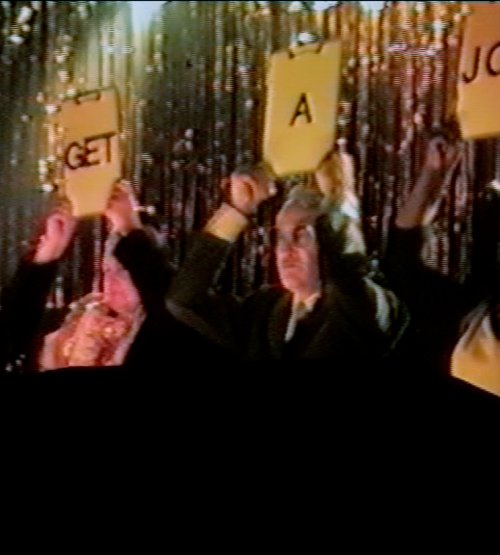
Babs: Lastly, what would you like people to take away from watching the film?
Ekow: The only dialogue in the film was from Tianah Hodding who spoke directly to the camera in BSL. I thought that was genius. But Channel 4’s initial release didn’t have the closed captions [they’re now included in the on-demand video on the Channel 4 website].
I don't know why they weren’t there. But it's vocal. It spoke a lot. It gave strength to the statement that was being made. In the film Tianah’s saying, “You can’t SEE us. WHY!? You never let us in!” - the closed captions not being included demonstrated that.
There's nothing worse than not being heard.
